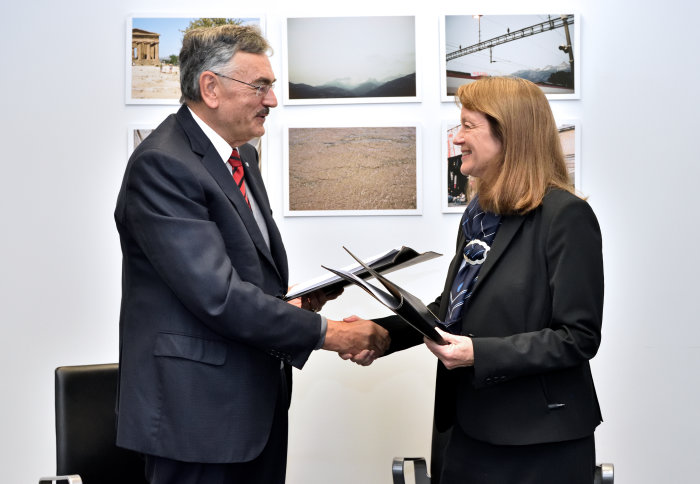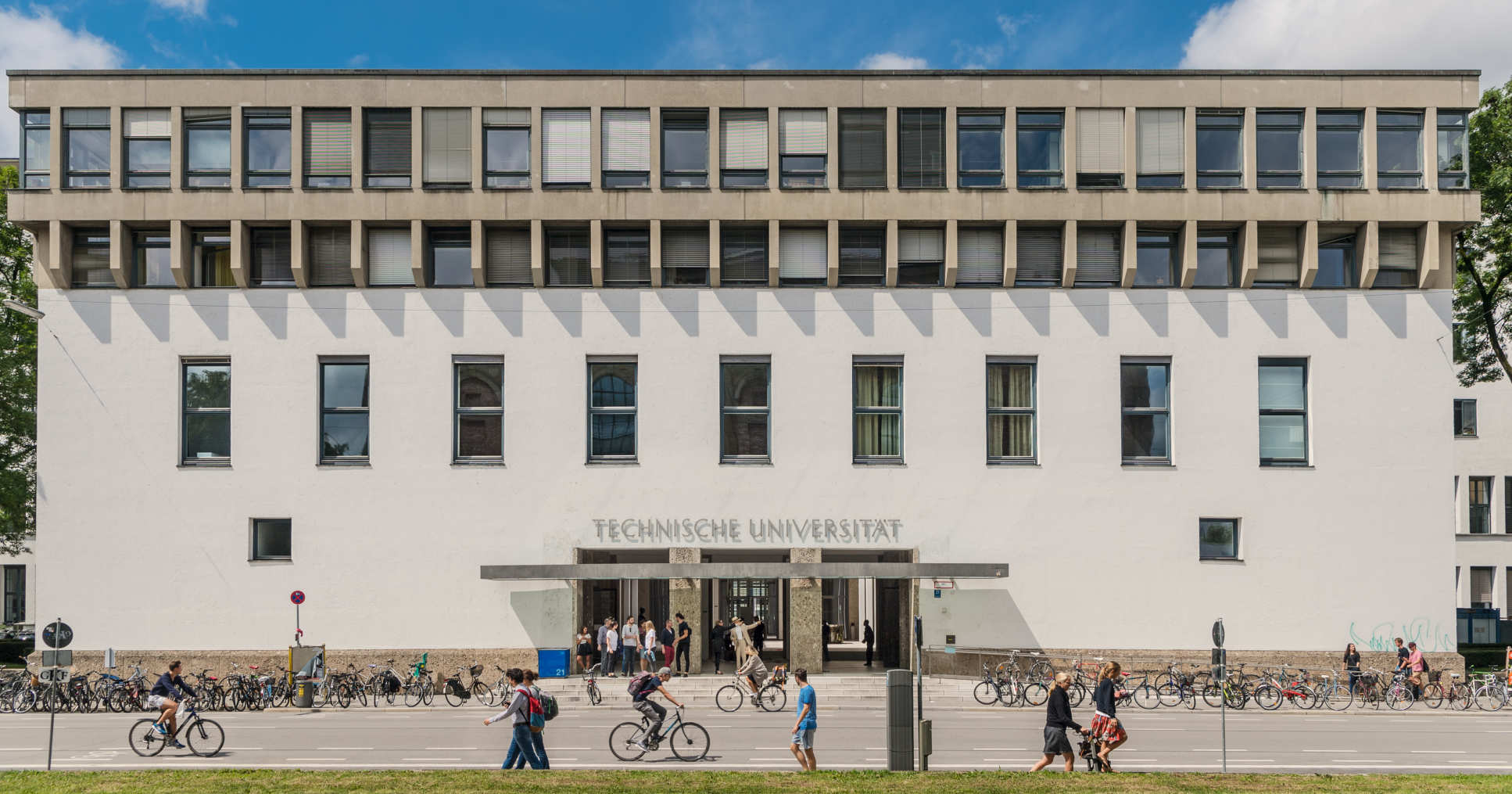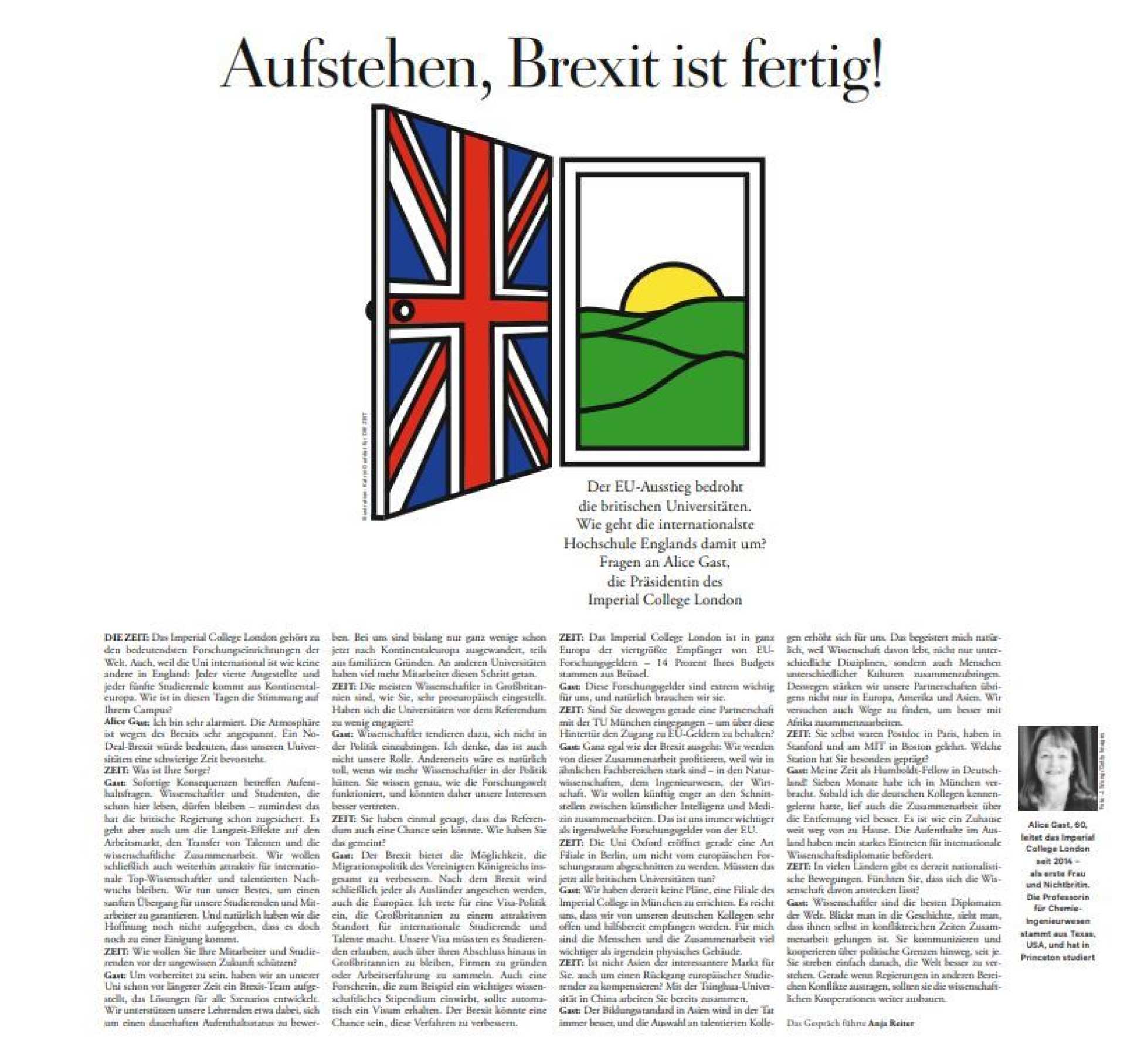Elevate research above Brexit impasse, urge Imperial and TUM Presidents

Professors Wolfgang Herrmann and Alice Gast signing TUM and Imperial's 'flagship agreement'
UK-European research cooperation should continue, say the heads of Europe’s top two technical universities.
Writing in the Financial Times, Imperial President Alice Gast and Technical University of Munich President Wolfgang Herrmann note that “Despite the Brexit impasse, there is a rare consensus between the left and the right, Brexiters and Remainers, and on the continent and in Britain. We all agree on the value of UK participation in European research programmes.
We can, and we must, agree now to extend our partnership until the end of the Horizon 2020 programme. Professor Alice Gast and Professor Wolfgang Herrmann Presidents of Imperial College London and the Technical University of Munich
“Last week, political leaders from Germany and the UK singled out scientific research as a priority. Support for European research collaboration should rise above politics.
“Academics in Europe are enthusiastic for future collaboration yet they worry about the damage a ‘no-deal’ Brexit would cause to research. The majority of the UK’s international research involves European partners.
“If co-operation becomes harder, our communities will suffer, discoveries will diminish and economic opportunities will be lost. From cancer to clean energy, UK-European research collaboration is crucial to solving global challenges.”

Professors Gast and Herrmann write: “Whether negotiations around Brexit lead to a deal, no-deal or a delay, research collaboration should be disentangled from politics. We can, and we must, agree now to extend our partnership until the end of the Horizon 2020 programme. This would allow continued collaboration in the event of a no-deal exit, while formal UK association with its successor, Horizon Europe, is agreed.”
New UK-German scientific collaborations
The intervention comes just weeks after Imperial and TUM moved their ‘flagship partnership’ forward, as scores of academics from both universities met in Munich.

The Imperial and TUM Presidents note that: “The collaborative achievements in unlocking the human genome, understanding the origins of the universe and pioneering graphene inspire us and remind us what is at stake. New collaborations between Imperial College London and the Technical University of Munich in artificial intelligence, neurotechnology, synthetic biology and aerospace engineering are causing excitement in Britain and Germany.
“It will be a tragedy if today’s historically unprecedented levels of scientific co-operation, discovery and excellence were to end up as collateral damage from Brexit.”
Die Zeit interview: European cooperation and scientific diplomacy
An interview with President Alice Gast is also published today in Die Zeit, Germany’s leading quality newspaper.

Professor Gast uses the interview to share her concerns around Brexit, talking about how Imperial is mitigating the risks and how the College’s ambition for new European partnerships, such as that with TUM, remains undimmed.
She told Die Zeit: “Scientists are the best diplomats in the world. Looking back in history, you can see that even in times of conflict, cooperation has been achieved. They communicate and cooperate across political borders. They simply seek to understand the world better. Especially when governments conflict in other areas, they should continue to expand scientific cooperation.”
The full letter can be read in today's Financial Times, and the interview can be read in Die Zeit.
Article text (excluding photos or graphics) © Imperial College London.
Photos and graphics subject to third party copyright used with permission or © Imperial College London.
Reporter
Andrew Scheuber
Communications Division